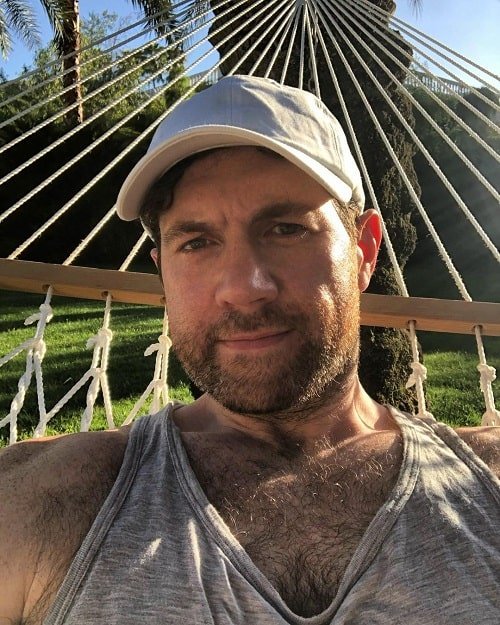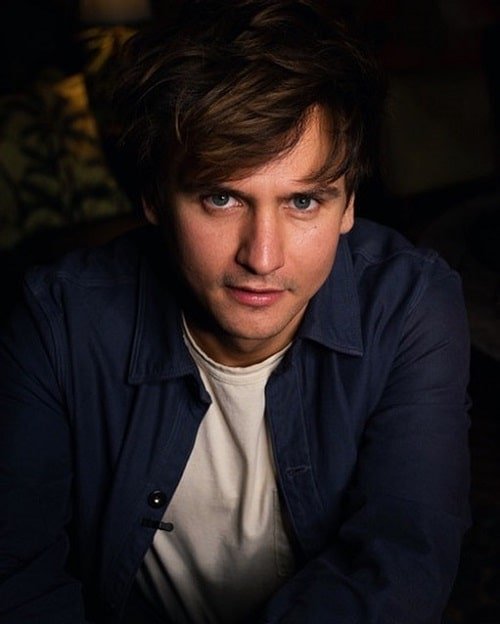Uncle Murda Wiki, Age, Net Worth, Girlfriend, Wife, Family, Biography & More
In this article, here is the full details of Uncle Murda about wiki, biography, date of birth, birthplace, zodiac sign, nationality, hometown, age, height, weight, father, mother, family, girlfriend, wife, relationship status, children, profession, education, career, net worth, facts, Wikipedia, and many more.

Uncle Murda, born Leonard Grant on July 25, 1984, in Brooklyn, New York, is an influential figure in the world of hip-hop music. Known for his gritty lyrics, vivid storytelling, and deep connection to the streets of New York, he has made a name for himself as a respected rapper and mixtape artist. Over the course of his career, Uncle Murda has demonstrated a relentless commitment to the genre, pushing boundaries, and exploring controversial topics. This article delves into the biography and life story of Uncle Murda, exploring his early life, rise to fame, musical journey, controversies, and the legacy he is continuing to build.
Early Life and Background
Uncle Murda’s story begins in the tough neighborhoods of Brooklyn, particularly in the East New York section of the borough. Growing up in an environment surrounded by crime, violence, and poverty, he quickly learned the harsh realities of life. Raised in a single-parent household, Murda’s mother worked hard to provide for him and his siblings, but the challenges of growing up in a crime-ridden area shaped his early years and his outlook on life.
In an interview, Murda has spoken candidly about the impact his neighborhood had on his development. Like many young men in his position, he was exposed to the allure of the streets, where drugs, guns, and violence were a constant presence. He also recounts how he was drawn to the world of hip-hop, which became a form of expression and escape from the difficulties surrounding him.
Murda’s early influences came from the rich hip-hop culture of Brooklyn, a borough that had already birthed legendary figures such as Jay-Z, Biggie Smalls, and Notorious B.I.G. He was particularly inspired by the raw, unfiltered storytelling found in the music of these artists, which he saw as an authentic portrayal of life in Brooklyn. Uncle Murda’s own approach to rap, filled with street narratives and braggadocio, was undoubtedly influenced by these greats.
Introduction to Hip-Hop
Uncle Murda’s path to hip-hop was not immediate but rather a gradual immersion into the culture. In his teenage years, Murda began experimenting with rap as a way to channel his frustrations, document his experiences, and compete with local talent. Initially, his focus was on writing lyrics, developing his flow, and honing his craft. Over time, he began recording and performing at local events, slowly gaining a following.
However, it wasn’t until Uncle Murda’s involvement in the mixtape scene that his name began to circulate beyond Brooklyn. The mixtape circuit in New York City was a crucial platform for up-and-coming rappers, and Murda made his mark with a series of well-received projects. His early mixtapes, such as The Murda In Charge series, gained attention for their hard-hitting beats, aggressive delivery, and honest depictions of street life. These mixtapes helped establish Uncle Murda’s reputation as an artist unafraid to speak the truth, regardless of how raw or controversial it might be.
By the mid-2000s, Uncle Murda’s buzz was undeniable. His distinct voice and street credibility resonated with listeners who were tired of the mainstream, glossy portrayal of hip-hop and were looking for something more authentic. Murda’s ability to balance street talk with insightful commentary made him stand out in a crowded rap scene.
Breakthrough and Mainstream Success
While Uncle Murda had been grinding for years in the mixtape world, his big break came in 2007 when he signed a deal with Jay-Z’s Roc Nation, a major turning point in his career. This collaboration with one of hip-hop’s most iconic figures introduced Murda to a broader audience. Although he didn’t achieve the same level of commercial success as some of his peers, his connection with Roc Nation cemented his status in the industry. Through this partnership, Murda gained more exposure and began receiving national attention for his distinctive style and raw lyrics.
His major label debut album, The Lox and Uncle Murda: The New York Anthem, was a collaborative project with the legendary rap group The Lox. The album featured several tracks that showcased Murda’s street-savvy lyrics and tough persona. The collaboration was well-received by hip-hop fans, further solidifying Murda’s place in the game. Although Murda’s success on the charts was limited, his artistry and authenticity earned him respect from both critics and fans alike.
Uncle Murda’s rise in the industry continued through the 2010s with a string of successful mixtapes. Projects like The Return of the Lox and The Real were pivotal in maintaining his relevance in the ever-changing landscape of hip-hop. He continued to showcase his gritty approach to storytelling, while also incorporating elements of trap and contemporary rap sounds into his music. These efforts helped Murda attract a loyal fan base that appreciated his ability to stay true to himself while evolving with the times.
The 2010s and Continued Success
Throughout the 2010s, Uncle Murda’s career continued to gain momentum, albeit with some controversy along the way. His collaborations with other hip-hop heavyweights, such as 50 Cent, proved to be pivotal. Murda joined forces with 50 Cent’s G-Unit label, making appearances on tracks like You So Tough and Murder alongside G-Unit members. These collaborations helped elevate Murda’s profile and increase his visibility in the mainstream rap world.
One of the standout moments of Murda’s career came in 2016 when he released his highly anticipated mixtape, Don’t Come Outside, Vol. 1. The mixtape was a commercial success, gaining attention for its bold lyrics, hard-hitting production, and Murda’s continued commitment to street-level rap. The mixtape, which featured guest appearances from artists like 50 Cent, Young MA, and Dave East, solidified Uncle Murda as one of the most authentic voices in New York rap.
Despite his rising success, Uncle Murda has often found himself at the center of controversy. Known for his unapologetic lyrics, which frequently discuss violence, street life, and the criminal underworld, Murda has faced criticism for glorifying negative aspects of urban culture. However, Murda has always defended his music, claiming that he is simply reflecting the realities of his environment. His music, though violent and confrontational, has always been rooted in authenticity and a desire to tell the truth about life in the streets.
The “Rap Up” Series and Media Recognition
In addition to his mixtape career, Uncle Murda became known for his annual “Rap Up” series, where he summarizes the most significant events of the year in rap and pop culture through his signature style. The first “Rap Up” was released in 2007, and each subsequent year saw Murda deliver a witty, often controversial commentary on the highs and lows of the year. These year-end wrap-ups became a staple in hip-hop culture, drawing attention from media outlets and fans alike.
The “Rap Up” series allowed Murda to showcase his lyrical prowess while also staying relevant in the ever-evolving hip-hop landscape. His ability to discuss current events, celebrity drama, and political affairs in his “Rap Up” tracks has made them a highly anticipated part of his annual output. This series has garnered Murda significant media recognition, further solidifying his place in hip-hop history.
Uncle Murda’s Legacy
Despite the controversies and the challenges, Uncle Murda’s legacy in hip-hop continues to grow. His commitment to storytelling, his authenticity, and his resilience have made him a respected figure in the genre. While his mainstream success has been limited compared to some of his peers, Murda’s influence in the underground rap scene and his ability to remain true to himself have earned him a dedicated fan base.
Looking back at his career, Uncle Murda’s contribution to hip-hop is undeniable. From his humble beginnings in Brooklyn to his rise through the mixtape circuit and collaborations with some of the biggest names in rap, Murda has demonstrated his ability to adapt and persevere. His storytelling, his unapologetic approach to street life, and his willingness to speak the truth have made him an iconic figure in the hip-hop world.
Uncle Murda has made a significant impact not only in the music industry but also in the cultural landscape. His unapologetic style, his commitment to authenticity, and his fearlessness in the face of criticism have earned him a place in hip-hop’s legacy. As Murda continues to release new music and engage with his audience, his story will remain a testament to the power of hip-hop as a platform for truth, expression, and resilience.
Stay connected with the wikimavani to know more about other trending personalities the wiki, biography, date of birth, birthplace, zodiac sign, nationality, hometown, age, height, weight, father, mother, family, boyfriend, husband, girlfriend, wife, relationship status, children, profession, education, career, net worth, facts, Wikipedia, and many more.





